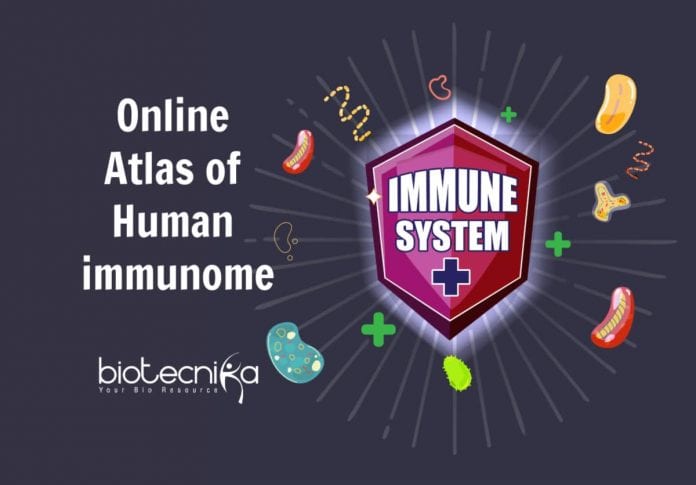Online Atlas of Human Immunome Developed for Precision Medicine
An interactive web-based atlas of the human immunome, the proteins or genes that make up the immune system has been developed by scientists from the SingHealth Duke-NUS Academic Medical Centre (AMC).
The atlas named Extended Polydimensional Immunome Characterisation or EPIC hosts an expanding, comprehensive immune cell database ranging from cord blood to adult stages. The mechanisms of immunity can be studied by the scientific community worldwide using this atlas. Nature Biotechnology published the team’s efforts recently.
The immune system protects the body against disease and infection with its complex network of proteins and cells. Human immunome holds the key to understanding why certain individuals respond differently to therapies, vaccines, and viruses. More effective therapies, vaccines, or treatments could be developed with the help of human immunome.
EPIC can provide a construct of the immune map and use artificial intelligence (AI) to stratify and analyze data sets, thus playing a major role in deepening and augmenting these studies. For example, EPIC can be used to analyze specific cell types particular to their specialty or research, or explore the whole architecture of the human immunome for different age groups.
Human immunome is like taking
an MRI of the human body at the cellular level, enabling scientists to pinpoint what can be done to tackle disease and what is right or wrong, said Professor Salvatore Albani, principal investigator of the study. The scientists hope EPIC can help predict clinical responses for precision medicine, understand the mechanisms of immunity, and even assist in identifying new therapies and vaccines.EPIC can also help scientists in obtaining detailed information on the development, maturation, and evolution of the immune system. And this can assist clinicians in making suitable therapeutic choices. The development of vaccines can also be accelerated using EPIC.
Diseases like liver cancer, immunological deficiencies, and arthritis can be better understood using EPIC. Dr. Yeo Joo Guan at KK Women’s and Children’s Hospital has been using EPIC to identify immune signatures and potential therapeutic targets associated with auto-immune diseases such as Systemic Lupus Erythematosus.
Although EPIC, the online atlas of human immunome, had only Asian phenotypes initially, immune cell datasets from regional and international sources like the US and the European Union were included over time. EPIC is accessible to all researchers, and anyone can contribute data, new analysis tools, and samples.






























